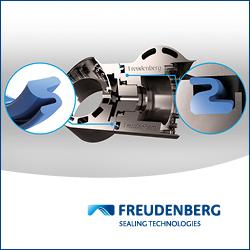One of the key advantages of AMRs lies in their adaptability. Manufacturing processes often require frequent changes, reconfigurations, or repositioning of equipment and materials. AMRs can quickly and easily adapt to these changing requirements.
 Transforming Manufacturing Processes with AMRs: Boosting Efficiency and Adaptability
Transforming Manufacturing Processes with AMRs: Boosting Efficiency and Adaptability

Article from | Omron Automation
In today’s rapidly evolving business landscape, companies are constantly seeking innovative solution to optimize their manufacturing processes. One technology that has gained significant traction is the implementation of Autonomous Mobile Robots (AMRs). These versatile machines offer a wide range of benefits, empowering companies to transform their manufacturing operations and stay ahead of the competition.
Streamlined Material Handling
Traditionally, material handling has been a labor-intensive and time-consuming process. However, AMRs can revolutionize this aspect by autonomously transporting materials, components, and finished products within the facility. Equipped with sensors and advanced navigation capabilities, AMRs can efficiently navigate through the workspace, reducing the reliance on manual labor and minimizing the risk of errors or accidents. This automation leads to faster material movement, streamlined workflows, and improved overall efficiency.
Flexible and Agile Production
One of the key advantages of AMRs lies in their adaptability. Manufacturing processes often require frequent changes, reconfigurations, or repositioning of equipment and materials. AMRs can quickly and easily adapt to these changing requirements. They can be programmed to perform various tasks, such as assembly line support, machine tending, quality control inspections, or inventory management. With the ability to handle multiple functions, AMRs enable manufacturers to achieve greater flexibility and agility in their operations, allowing them to respond swiftly to market demands.
Improved Safety and Ergonomics
Worker safety is of paramount importance in any manufacturing environment. By deploying AMRs for repetitive or physically demanding tasks, companies can minimize the risk of work-related injuries and accidents. AMRs can handle tasks such as lifting heavy objects, transporting hazardous materials, or navigating through challenging environments. This not only ensures a safer workplace but also enhances employee satisfaction and productivity by reducing the physical strain associated with such tasks.
Enhanced Inventory Management
Maintaining accurate inventory records and optimizing stock levels is crucial for efficient manufacturing processes. AMRs equipped with RFID technology or barcode scanners can autonomously perform inventory checks, monitor stock levels, and even execute replenishment tasks. These robots can navigate through storage areas, identify, and locate specific items, and update inventory systems in real-time. By automating these processes, companies can reduce inventory errors, minimize stockouts, and improve overall supply chain management.
Data-Driven Decision Making
AMRs generate a wealth of data as they operate within manufacturing environments. By leveraging this data, companies can gain valuable insights into their operations, identify bottlenecks, and optimize processes. For instance, analysis of AMR movement patterns and efficiency can help in redesigning production layouts or identifying areas for improvement. Additionally, the integration of AMRs with existing manufacturing systems, such as Enterprise Resource Planning (ERP) or Manufacturing Execution Systems (MES), allows for seamless data exchange and facilitates efficient data-driven decision-making.
The implementation of Autonomous Mobile Robots (AMRs) holds tremendous potential for transforming manufacturing processes. From streamlining material handling and enabling flexible production to enhancing safety and empowering data-driven decision-making, AMRs offer a range of benefits that can drive operational efficiency, reduce costs, and improve overall productivity. As companies embrace automation and seek innovative solutions, AMRs emerge as a valuable tool in their quest for competitiveness in an ever-evolving marketplace. By harnessing the power of AMRs, manufacturers can optimize their processes, stay ahead of the curve, and adapt to the dynamic demands of the industry. Our team of AMR experts are ready to transform your material transport processes.
The content & opinions in this article are the author’s and do not necessarily represent the views of RoboticsTomorrow

Omron Automation
Omron is an industrial automation partner that creates, sells and services fully integrated automation solutions that include robotics, sensing, motion, logic, safety, and more for manufacturers in the automotive, semiconductor, food and beverage packaging and other industries. Established in 1933, Omron helps businesses solve problems with creativity worldwide, with more than 37,000 employees serving over 110 countries. Adept Technologies is now a valued part of the Omron family.
Other Articles
Advancing Machine Design with the Power of Collaboration and AI
Preparing Your Facility for Mobile Robots: Key Considerations for Seamless Integration
Maximizing the Value of Collaborative Robots
More about Omron Automation
Comments (0)
This post does not have any comments. Be the first to leave a comment below.
Featured Product

